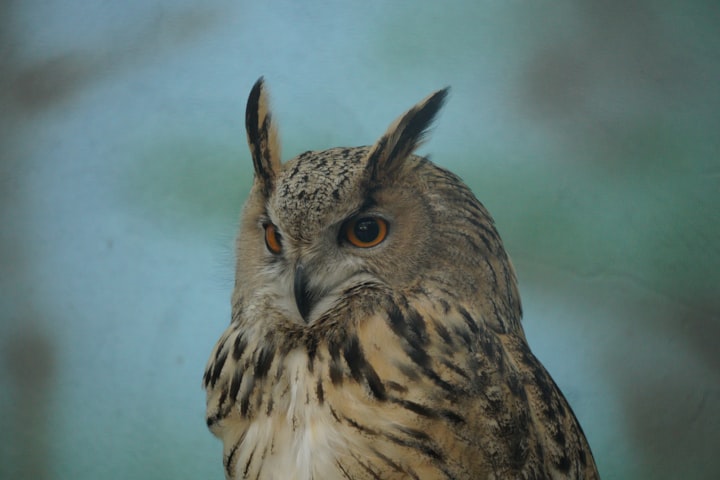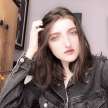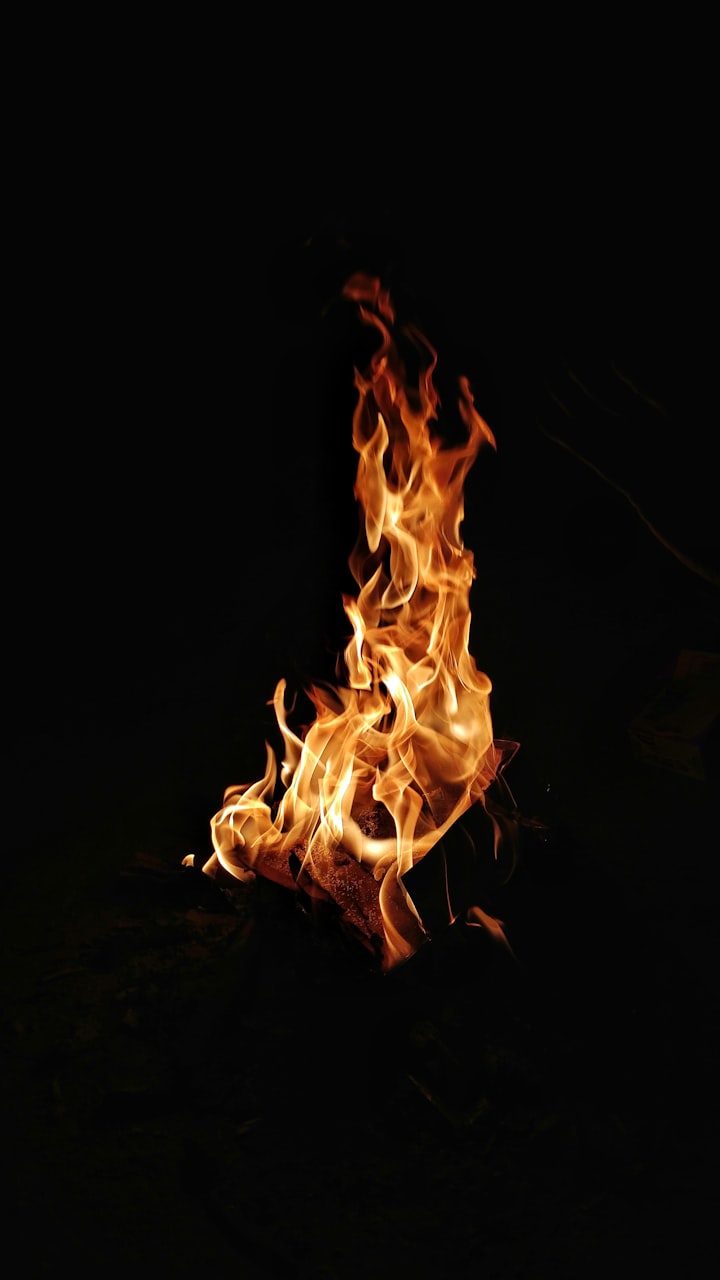Ozymandias
a short story

Konstance DuBois had no business in this new millennium. At twenty-three, he was a solitary creature– unemployed and with no apparent prospects. It was true that he had secured an undergraduate degree from Florida State University, and in the Legal Studies Department at that, but he had no intention of becoming a lawyer, since that would require engaging with society in a way he felt himself inherently unable to do.
This was not to say that he was anti-social or unintelligent. If anything, he was simply rudderless.
He was somehow short and lanky at the same time. His hair was an unattractive mop of dirty blonde curls that had the look of being unwashed no matter how recently he had showered. His younger brother, Vladimir (their mother had become unexpectedly taken by Eastern European names during the years surrounding their births, which was reasonable since she was only a teenager at the time) was much prettier to look at, with dark ringlets and flashing blue eyes. Everyone adored Vladimir. Fair enough, Konstance thought. Perhaps there were worse things to adore.
Konstance had contracted Covid-19 approximately five times in the past three years of the pandemic, despite only leaving his house to go to the Walgreens down the block. His doctors referred to this as a medical implausibility, and yet there he was.
(He liked Walgreens because he could buy doritos and old spice deodorant at the same time. The flickering fluorescents, reflecting harshly upon so many feet of uninterrupted linoleum, seemed to him a kind of mediocre paradise.)
He had been homeschooled, because his father was an evangelical pastor and his mother was fifteen years younger than her husband and neither of them trusted the public school system. Public school was, according to the church, just a place that children went to be brainwashed by the Democrats into hating God and believing in dinosaurs. Fair enough, Konstance thought. Perhaps there were worse things to believe.
(That the union between his parents was essentially an arranged marriage, the culmination of many long months of grooming, was an open secret. Konstance tried very hard not to think too much about that.)
His only compelling quality, insofar as he could see, was that at the time of his birth the stars were favorable. This is to say that he was born a Taurus Sun and an Aries moon, which made him very popular at college house parties thrown by astrology lesbians. At this point, it might be reasonable to ask how frequently Konstance was invited to any such parties, to which this author must supply a disappointing answer: almost never. After all, Konstance was not a particularly sociable creature. By his own admission, he preferred the central cooling of his shadowy basement to the pulsing possibilities of a night out.
One winter afternoon, as the sun disappeared somewhat depressingly behind a series of plump clouds, he had been walking along on one of his weekly outings to Walgreens, when a flash of something pale and silent caught his eye. His gaze darted upwards to follow the things trajectory, and something clicked into place. A barn owl.
He stood anchored to the spot, watching it a while. It glared back at him from out of wide, yellow eyes.
“Oh, hi,” Konstance called politely.
The bird did not respond, but instead tore off in the direction of the horizon, out of Orlando.
For a moment, Konstance grieved the departure. How lonely it was to be an unemployed millenial with a useless undergraduate degree and an esoteric knowledge of Romantic poetry. He let his thoughts turn down one of their more well-traveled routes: futurity.
After all, Konstance was very concerned about the future, despite his relative immobility. If anything, he felt paralyzed by the sheer amount of potentialities that extended endlessly out from his trajectory in space time. He could not know which among them was the right one to choose, and so instead, he would retreat backwards, into the nineteenth century. He had a thing for romantic poets: Shelley, Byron, Blake, Keats, Coleridge. They, he imagined, were quite a lot like him. They were empty vessels too, struggling to say something that could never be properly said–not truly. But where they overcompensated for this impotence, Konstance undercompensated. Instead of writing his own truths, he devoured their attempts, for all of the good that did.
There was that disaster of a sonnet by Shelley, for example, that "Ozymandias", which in describing a ruin, unintentionally or intentionally described itself:
Nothing beside remains. Round the decay
Of that colossal Wreck, boundless and bare
The lone and level sands stretch far away
Konstance felt a camaraderie with the boundless bareness of it all. But he was not complaining. There wasn’t any point.
***
That evening, Konstance dreamed about the barn owl. He came upon it, and this time it did not desert him, as it had in real life.
Its wide yellow eyes flickered, as though winking, and then the creatures head opened along a line at the center, revealing a thousand intricate circuits and sparks. The bird, as it turned out, was a kind of robot– an avian cyborg. The dull hooting sounds it made came from a prerecorded tape that played from a microphone nestled where the esophagus ought to be.
The boy awoke in a cold sweat, his mind racing uncomfortably, his heart thundering like a train on a track.
***
Konstance had always put a little too much stock in dreams, at least, that is what Vladimir said, and everyone loved Vladimir, so when he said it, they would nod along and agree as if it made perfect sense.
Perhaps they were right, because after the barn owl dream, Konstace became obsessive.
***
A week later, he had created the beginnings of a movement. A facebook page, twitter account, even a tiktok, all under the username @barnowlsarefake.
The aim of his project was a simple one: destroy the public faith in the existence of certain objective truths. In this modern age of misinformation, nothing was real. Not even birds. Perhaps, especially not birds.
For all that the world knew, owls might be complex flying drones masquerading as animals. Perhaps the government was using them to spy on its own citizens. Surely The NSA had enacted more insane and insidious plans over the years.
The follower counts were slow to grow at first, and then quite suddenly, they exploded.It seemed that Gen Z had a taste for the satirical and absurd. It was, Konstance reasoned, a miracle that the children of today had a taste for anything.
In a matter of hours, @barnowlsarefake went for 724 followers, to ten thousand.
***
The New York Times wrote a not altogether unkind article on Konstance, that traced the trajectory of his upbringing, to the prophetic owl dream, to his rise to internet stardom.
Everyone is looking for nuance, an editor had explained to him over coffee the week before it ran, and your story is overflowing with it.
Konstance nodded, as though any of this made sense. The only aspect of his meteoric ascent that seemed real to him, was the impossibility of it all, as ridiculous as mechanical strigiformes, or fake news, or the existence of a global pandemic.
His father called him that evening on the telephone, apoplectic with rage.
“Why are you spewing this nonsense all over the place? Your mother is very distressed. She thinks you actually believe this stuff. What is the matter with you? The whole world thinks you’re an idiot!”
“I’m sorry,” Konstance hummed vaguely through the line.
“Sorry isn’t good enough,” his father raged and Konstance could almost see the way his face would flush red with wrath, the way his unibrow would furrow, “Take it all down right now. All the accounts and everything!”
“You can’t really delete something once it’s out there on the world wide web,” Konstance explained patiently, “Things have a way of sticking around. Besides, this isn’t much different from what you and mom read on QAnon, is it?”
With an almighty slam, the line went dead, and Konstance blinked slowly.
He tried to avoid any and all conversations with his father, since they had the habit of making him feel strangely hollow– he disliked all of the compacting nothingness that hummed and roared inside of him in the wake of their interactions. It made him feel hot and mercurial and unstable.
***
After a bag of cool ranch doritos for dinner, Konstance crawled into bed.
That night, he dreamed again of the barn owl. She was his muse, after all.
This time the creature did not give any indication of its mechanical interior. Instead it regarded him coolly from out of the darkness.
“Oh, hi,” Konstance whispered.
The owl shivered slightly, shifting its feathers.
“What is it?” the boy cried, intrigued.
The bird’s beak opened imperceptibly, and out came a flow of familiar words.
She walks in beauty, like the night
Of cloudless climes and starry skies;
And all that’s best of dark and bright
Meet in her aspect and her eyes;
Thus mellowed to that tender light
Which heaven to gaudy day denies.
Apparently satisfied with her words, the owl quirked its head to one side, before departing in a rush of feathers. She would go out into the night and kill, Konstance knew. How brutal and beautiful.
Konstance found himself once more returned to his room. It occurred to him as he settled back into his blankets, that the owl was quoting Byron. How terribly cyclical and lovely in its own way. He rolled over and fell back asleep.
***
Konstance DuBois had no business in this new millennium. At twenty-three, he was a solitary creature– unemployed and with no apparent prospects on the horizon.That he was the leader of a global cyborg-avian movement hardly changed these basic facts. After all, the movement itself was psychotic. Even Konstance knew this.
But he did not mind.
Actually, he rather enjoyed it.
About the Creator
Katie Alafdal
queer poet and visual artist. @leromanovs on insta






Comments
There are no comments for this story
Be the first to respond and start the conversation.